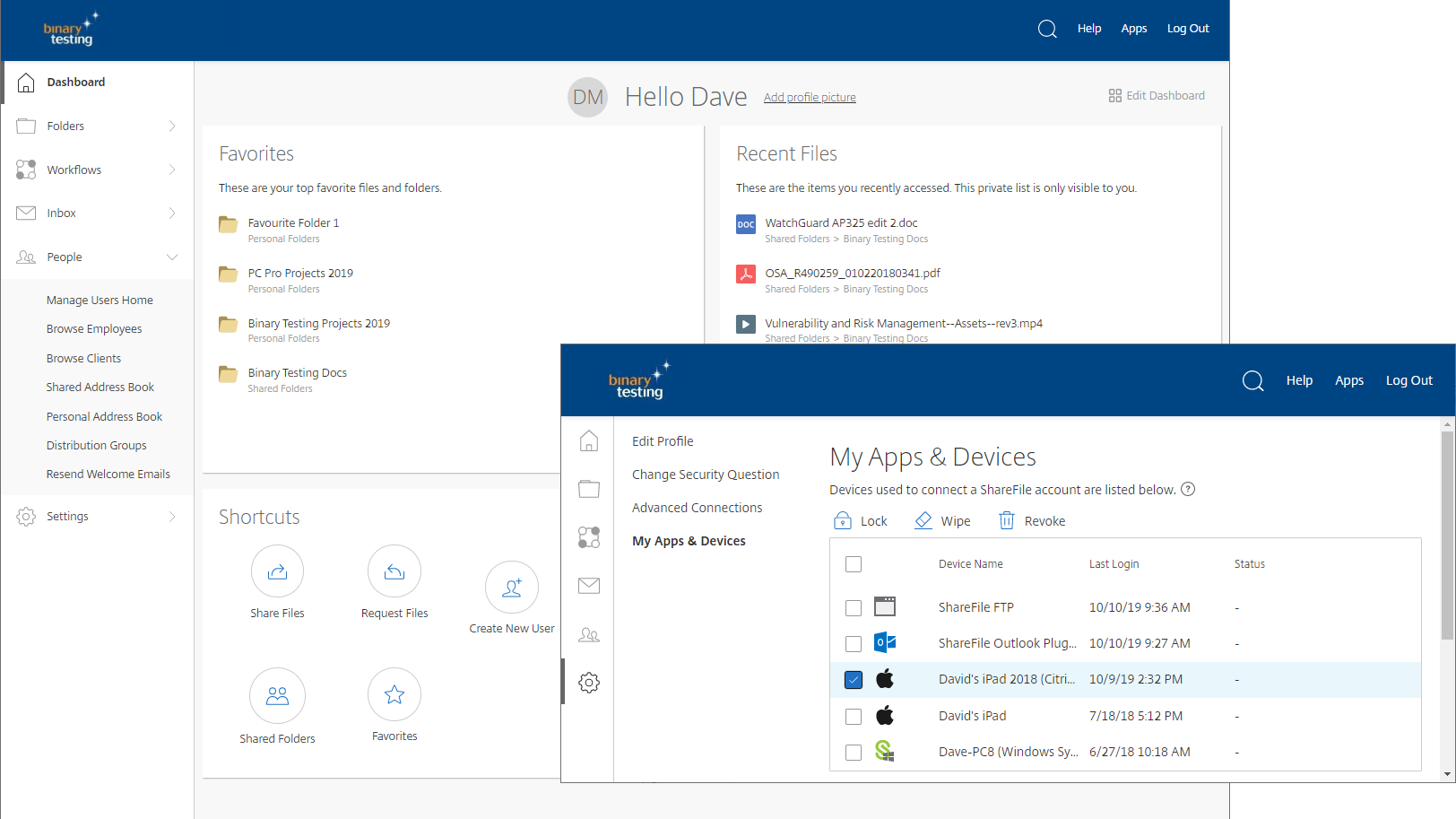Q&A: Citrix's CTO on why the cloud needs virtualisation
Virtualisation is key to cloud computing no matter how you look at it, according to Simon Crosby, Citrix’s chief technology officer for data centres.


Virtualisation firms like to hitch their fates to the rising star of cloud computing, claiming their tech is vital to make the cloudy revolution happen.
Speaking to IT PRO this week at a press event in Budapest, Citrix chief technology officer for data centres Simon Crosby makes the case for virtualisation as a cloud enabler - and explains why Microsoft's licensing hold-up isn't actually the tech giant's fault.
Crosby also predicts cloud pricing can fall further still, and explains why VMware is causing concern for the channel.
Virtualisation is frequently cited as the tech that makes or will make the cloud work. Why is it important to the cloud landscape, and is it equally important to Software as a Service (SaaS), Platform as a service (PaaS) and Infrastructure as a Service (IaaS)?
Cloud is several things. It's software as a service, it's platform as a service, it's infrastructure as a service, at the crudest level...
In infrastructure as a service, virtualisation is the enabler because in infrastructure as a service you're basically renting computer storage by the hour and then virtualisation allows you to just add your workload whenever you want to run it. So that's a key requirement. It also then feeds up into the platform at a service level, because if you look at how Microsoft is building Azure, what VMware will do with SpringSource, and where all the other platform players are going, they will use virtualisation underneath as the way of dynamically scaling out units of compute.
So I'll write my next application on a platform which is not aware of the boundaries or confines of a single server. It assumes availability and scalability, elasticity, properties. And under the hood, this application platform is dynamically instantiating new units of compute by throwing up VMs [virtual machines] as and when I need them. Platform as a service is also founded on the notion of a virtualisation layer. In the traditional SaaS area, even if you look at Salesforce and the traditional big SaaS apps eBay and so on they're not substantially virtualised today.
Sign up today and you will receive a free copy of our Future Focus 2025 report - the leading guidance on AI, cybersecurity and other IT challenges as per 700+ senior executives
Virtualisation is starting to penetrate those folks in the same way that it's penetrating large enterprises. If you look at someone like a Yahoo, it is merely a large enterprise, with several hundred thousand servers. It has all the same challenges of legacy software, of low utilisation and having lots and lots of apps... And its requirements are very similar to what a large enterprise would want. It wants to quickly instantiate a new app, a new property under management or whatever it might happen to be, and dynamically put infrastructure to use for apps and allow it to scale.
Its requirements are very similar to those of large enterprises who want to build private clouds. So funnily enough if you talk to the Yahoo guys they'll tell you they're building a private cloud even though the company is a big SaaS vendor.
So there virtualisation has an increasing role to play, but it hasn't very significantly penetrated them yet, because typically they run one instance per server.
The big players seem to be able to offer cloud computing at a very, very low cost. You cited an example earlier about the New York Times scanning all their back issues for compute costs of just $240. Will enterprise IT departments ever be able to offer such low costs?
There are a few existence proofs that one can do some pretty cool things. If you look at [construction firm] Bechtel as an example, it actually took a look at its infrastructure and decided to try and be like a cloud.
It did some pretty crazy stuff. For example it used to have its own network that ran worldwide, linking all sites, and it just threw it all away, and now it just uses the internet.
It just uses the public internet and VPN technology instead of having frame relay. It has outsourced a very substantial portion of the compute infrastructure into clouds, and has built its own private cloud. It did it using XenServer.
It delivers applications to all employees and contractors using XenApps. That's essentially applications as a service and it is going to do that for desktops too. So it has become its own service provider to employees and to all contractors. The company has cloudised in many ways and is adopting bits of infrastructure from cloud vendors from Amazon and so on, as and when it makes sense.
It has made very very substantial in-roads and gone from a point where IT budgets were growing five per cent year on year, which is pretty impressive in its own right, to where IT was running as a profitable business relative to that. It brought the costs down by something like 70 per cent.
How much of the business was pushed to external cloud vendors? What other ways did they use the cloud to save?
Very little of it has gone to the cloud vendors, thus far, it's still moving that way. But them becoming a cloud, and adopting a centralised notion of delivery...
Virtualisation played a big role in the company implementing its own cloud, but virtualising the way that it deliver apps, instead of installing apps on PCs and delivering PCs to end users, it's a very substantial change.
Another major change came from the fact that the business is project based. And so it would stand up a new construction project roughly once a week, worldwide. So it would stand up a project for three years, and then it gets shelved. For regulatory reasons generally it had to keep these projects running forever, so it was taking large amounts of server infrastructure. Now, courtesy of virtualisation it basically gets to pickle up a project into a bunch of VMs and just stick it away somewhere. And if it ever needs to unpickle it for legal reasons, it can do so and stand it up again.
That's brought enormous savings in terms of increased utilisation. And the ability to take templates for core apps that would stand up for a project, just VM templates and just stand them up, in a hurry. It's just transformed the way the company does business. Is that the future of enterprise IT a private cloud that can access external resources?
I think they'll do both. Certainly the enterprise need for compute is still growing and so at a time when people cannot afford to buy more server. By the way, that's not down to the incremental cost of a new server, it's down to the incremental cost of a new data centre generally, because that's the unit you have to provision these things under, unfortunately...
Given the current growth trends of compute in enterprise, you say "it doesn't make sense that we have to spend $60 million on a new data centre" at this point, I'm going to invest in greater automation and virtualisation and consolidation internally, and wherever appropriate, incrementally grab capacity from someplace else.
Now that capacity could be in many forms. It could be that you don't want to run exchange server anymore, so you take it to Microsoft... just get them to run Exchange instead of you, and gosh, they ought to be able to do it better than you anyway. It could be that you take your CRM system out to something like Salesforce.
So there are SaaS implementations of this, which is also part of taking advantage of the cloud, but then there are the applications that are not the standard apps, that you need to run to serve your users and you want to take advantage of cloud.
There are two options. One is to run them yourself, and the other is to run them inside somebody else's rent capacity.
So going back can a private, internal cloud offer IT as cheaply as Amazon can?
Let's be clear. The Amazon model is not innately cheap. That is, it is the leader and it hasn't experienced massive pricing pressure yet. There isn't anybody big enough to give it a serious run for its money yet. Moreover, the per VM pricing model today is still biased in favour of turning them off a lot. If you actually run a VM in EC2 24/7, it's about the same as running a server turns out to be several hundred dollars a month.
But that will change as more and more competition comes online.
If you talk to Bechtel guys, they would tell you that where they use Amazon EC2, it's for workloads where they're quite happy to turn them off overnight. Might be a remote branch, it'll be some app that's only needed during the work day, and so they turn it on and turn it off. And so there they get a capacity saving and all the other benefits of cloud.
In general, can enterprise get the same cost savings that the cloud can? Arguably, the biggest advantage of folks like Google, Amazon, and Microsoft with Azure is scale building a data centre next to sources of power, and/or coolling, and so they'll always beat the rest of the world at lowest cost of operation.
However, their models are not yet rich enough from a security or appliance perspective, or even just from infrastructural features support, for enterprises to be able to trust mission-critical workloads to them. And that's going to take a long time.
So there will always be some substantial portion of the enterprise workload that wants to live at home, and there the private cloud is going to be a requirement.
Moreover, for those workloads, you are not prepared to tolerate the notions of service disruption that comes with the cloud. Let's be very clear, there have been some major service disruptions to everyone of the big cloud services, well documented outages at Amazon, Azure and so on. Until that gets sorted out, and there's a whole bunch of legal stuff that has to get sorted out there, those major mission critical workloads are going to stay at home.
How long will it be until those mission critical workloads head to the cloud, if ever?
Some of it is happening with some mission critical workloads already, if you look at companies that have invested in CRM. Salesforce has done a pretty good job. And arguably, it is mission critical to them.
But those companies would argue that having it in a cloud makes it more highly available to their end users than by running it themselves. Which is kind of funny because if you have a large salesforce and they're using CRM, it's far easier for them to go and access this web-based app than it is for them go and find their way in on some VPN into some legacy corporate app. So availability is a swings and roundabouts argument.
Until the regulatory issues get solved, and until the software licensing gets solved, none of those mission critical workloads will move to the cloud.
The licensing issues relate to the operating system Microsoft still has its homework to do but also to the applications themselves. Sometimes they are tied to a physical machine and the agility is not there.
Which companies are actively trying to sort this issue out? How much is Microsoft holding up the show?
Microsoft has been trying. Microsoft has been hobbled pretty severely by its own regulatory environment. It's almost a regulated industry. After the consent decree, Microsoft has been very...it has to move so slowly, as it has to check everything with the DoJ.
It is actually making a very sincere attempt to address many of the licensing issues, but is hobbled in many respects. Many people are actively seeking to screw it up Oracle being one. Oracle is a real standout. And it has its own agenda good for them but I think finding good citizens... If you look in the app world, SAP's been a shining example of doing the right thing.
It certified against all the leading virtualisation platforms, it has a very active ecosystem approach and has completely known solutions and so on. It is a leader in terms of the core perhaps.
How important are partnerships and ecosystems and teaming up to making cloud computing work? Do you all need to go forward holding hands for it to work?
Our approach is to be open in a Microsoft-like way. Microsoft has always been very good with ISVs. Microsoft's core philosophy is that it builds the platform and the ISVs add the value. It has always had that view. Our approach is very similar.
You'll see more and more integrated stack, coming from some key vendors. So, for example, if you look at this Cisco/VMware/EMC thing that is kind of a preintergrated solution, so-called cloud in a box, I guess.
In my view, that is a bit of a threat to the channel, and its ability to be an independent advisor to the customer...
The more pre-integrated solutions are, like vBlocks from EMC and Cisco and VMware, the less value those guys get to bring, and I think thats a fairly substantial assault on the channel and its ability to be an independent advisor. And I know the channel doesn't like that at all.
Citrix is very committed to that channel model of dirstrubution and sale. It's key to our efficiency and to margin and bottom line growth.
VMware has increasingly started to take deals direct, and the channel hates it. They really hate it. If there's a really large deal, some VMware presale will come in and help, and then they'll take the deal direct and they'll give the reseller some amount of money but it'll be substantially less.
Freelance journalist Nicole Kobie first started writing for ITPro in 2007, with bylines in New Scientist, Wired, PC Pro and many more.
Nicole the author of a book about the history of technology, The Long History of the Future.
-
 The modern workplace: Standardizing collaboration for the enterprise IT leader
The modern workplace: Standardizing collaboration for the enterprise IT leaderHow Barco ClickShare Hub is redefining the meeting room
-
 Interim CISA chief uploaded sensitive documents to a public version of ChatGPT
Interim CISA chief uploaded sensitive documents to a public version of ChatGPTNews The incident at CISA raises yet more concerns about the rise of ‘shadow AI’ and data protection risks
-
 Citrix warns products sold through legacy licensing setup face 'loss of functionality'
Citrix warns products sold through legacy licensing setup face 'loss of functionality'News With Citrix moving to a new cloud-based licensing scheme next year, the company has urged customers to make plans for the transition.
-
 Citrix wants to help enterprises dodge pricey hardware costs
Citrix wants to help enterprises dodge pricey hardware costsNews Tariffs could push up hardware costs in the coming months - Citrix wants to ease the pressure
-
 Citrix confirms two new NetScaler vulnerabilities as firms urged to patch immediately
Citrix confirms two new NetScaler vulnerabilities as firms urged to patch immediatelyNews Citrix has issued patches for two new vulnerabilities in its NetScaler ADC and Gateway appliances
-
 Citrix mulling potential sale after tumultuous 2021
Citrix mulling potential sale after tumultuous 2021News Share prices have tumbled due to consecutive quarters of "mixed" financial results
-

 Citrix ShareFile review: Slick collaboration, stonking price
Citrix ShareFile review: Slick collaboration, stonking priceReviews An affordable cloud service that’s easy to manage and perfect for businesses that need to share huge files
-
 Server virtualization: What is it and what are the benefits?
Server virtualization: What is it and what are the benefits?In-depth Server virtualization offers a quick and effective way of creating a more efficient IT infrastructure, but how does it work?
-
 Everything you need to know about Citrix
Everything you need to know about CitrixIn-depth A comprehensive guide to Citrix, tracing its history from on-premises virtualization to cloud services, highlighting key acquisitions and business mission
-
 Citrix ShareFile: grown-up file sharing
Citrix ShareFile: grown-up file sharingIn-depth Steve Cassidy takes a look at what ShareFile has to offer.
